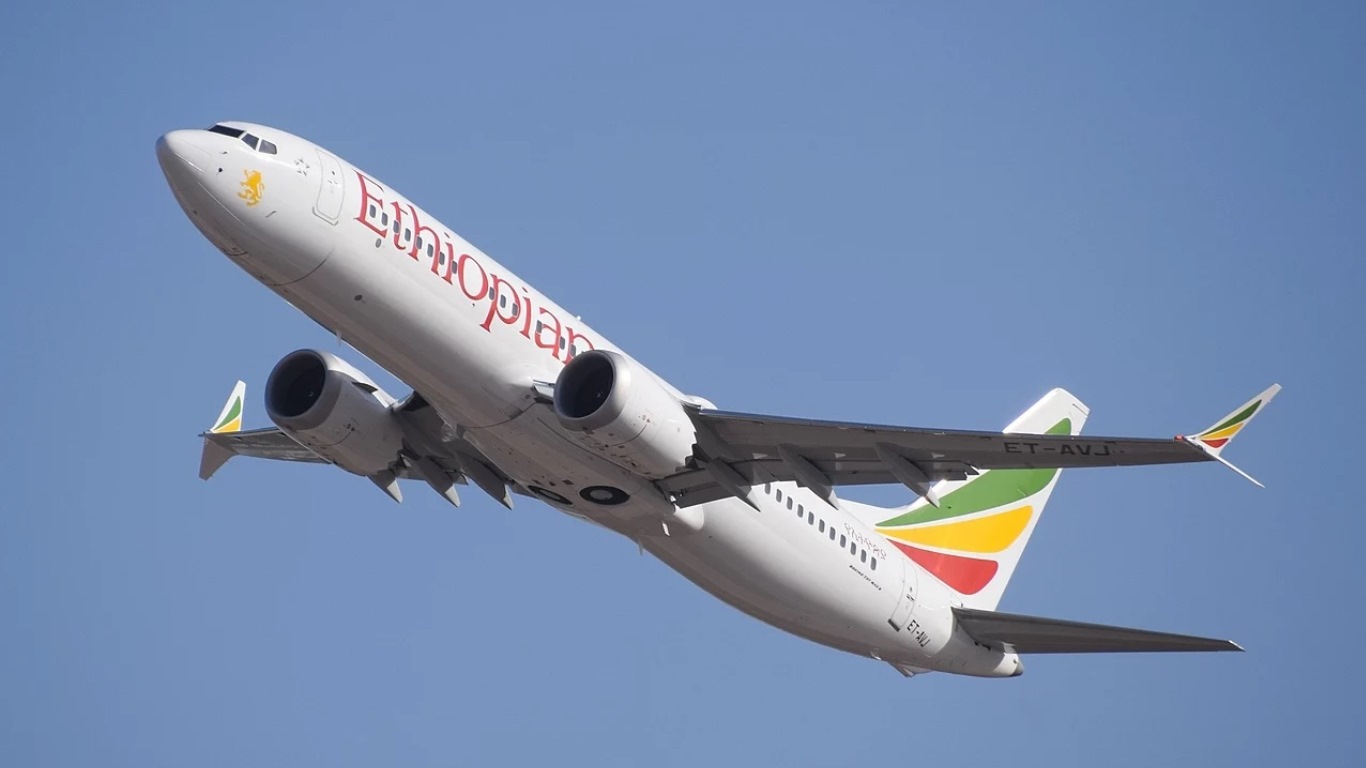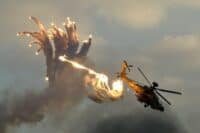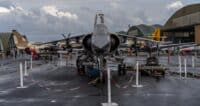

The U.S. Federal Aviation Administration (FAA) on Wednesday issued a statement updating the agency’s “continued operational safety activities” related to Boeing Co. (NYSE: BA) 737 MAX 8 and MAX 9 single-aisle passenger jets. The FAA did not lift its grounding order on the planes.
The FAA’s Continued Airworthiness Notification to the International Community, aka a CANIC, reiterates that Boeing is preparing new software for the aircraft’s flight control computer and has developed flight crew training related to the new software. None of this is news, so why did the FAA issue this CANIC?
One possibility might be to indicate that the United States expects the Boeing 737 MAX airplanes to remain on the list of goods to be purchased by China as part of a settlement to the U.S.-China trade war. China has threatened to remove the aircraft from the list of allowable U.S. exports, according to a recent report at Bloomberg News.
Aviation industry analyst Richard Aboulafia of Teal Group, writing in Foreign Policy magazine, indicates that if a Chinese carrier were to place an order for the 737 MAX that would be a “huge endorsement” for the aircraft. If, however, China prohibits its domestic airlines from buying the planes, that would “spread an even darker cloud” over Boeing’s most important product.
Aboulafia points out that China’s Civil Aviation Administration (CAAC) was one of the first agencies to ground the 737 MAX following the crash in Ethiopia that killed 157 people: “[T]he CAAC’s move to ground the jet, before there was any compelling evidence to justify its grounding, is best viewed as just another tactic in China’s trade negotiations.”
The CAAC has only modest experience with certifying an aircraft’s airworthiness. The agency also lacks transparent procedures, a solid track record and, most important, “freedom from political interference.” It is the last point that Aboulafia expands on.
China’s most exported plane is a Modern Ark 60 (MA-60) turboprop of which the state-owned aircraft maker had sold 57 to foreign buyers by 2016. More than half of those planes are no longer being flown either because of safety concerns (at least 26) or damage (six), according to a Wall Street Journal report. CAAC kept the plane’s safety issues a secret, Aboulafia claims, because it had “simply been ordered by other government officials to keep it flying no matter what.”
Aboulafia goes on:
Since the CAAC has no independence whatsoever, it’s entirely reasonable to attribute a political motivation for the decision to ground the Max. It could indeed have been done out of concern for the public good, although the MA-60 story certainly suggests otherwise, but the CAAC is an arm of the Chinese government, which clearly has an agenda.
That agenda includes the Comac C919, China’s own first attempt to compete with Boeing and Airbus in the market for single-aisle jets like the 737 MAX and the Airbus A320neo. Damage to Boeing’s reputation (which the company has shown it needs little help with) could stifle sales of the 737 and pay big dividends for the C919 and its follow-on C929 twin-aisle stablemate.
In the near term, though, Aboulafia puts CAAC’s motives down to government interference:
Since the CAAC has no independence, it’s reasonable to assume that their actions are part of the government’s negotiating position, and that the grounding will now permit them to get more for their purchase agreement. Even if they forego a 737 Max order in favor of other planes, Beijing’s hand becomes stronger because of this grounding.
Boeing, of course, is not entirely blameless for its current flogging. Both it and the FAA were late to accept grounding the 737 MAX fleet. That decision may have been made on solid technical and investigatory grounds, but the president claiming credit for the FAA’s decision was the sort of announcement one might expect from a tin-pot dictator for whom everything is a personal insult or a personal triumph. The president’s crowing certainly did the FAA’s reputation no good, and it did Boeing’s no benefit either.
Recently announced investigations into the relationship between Boeing and the FAA are also chipping away at the reputations of both the company and the agency. How this all may shake out for Boeing business and for the FAA’s pre-eminent reputation for independence was foreshadowed by both the Canadian and European safety regulators when they announced that they would conduct their own certification procedures before allowing the 737 MAX to fly again rather than accept — as has been past practice — the FAA’s judgment.
Take This Retirement Quiz To Get Matched With An Advisor Now (Sponsored)
Are you ready for retirement? Planning for retirement can be overwhelming, that’s why it could be a good idea to speak to a fiduciary financial advisor about your goals today.
Start by taking this retirement quiz right here from SmartAsset that will match you with up to 3 financial advisors that serve your area and beyond in 5 minutes. Smart Asset is now matching over 50,000 people a month.
Click here now to get started.
Thank you for reading! Have some feedback for us?
Contact the 24/7 Wall St. editorial team.
 24/7 Wall St.
24/7 Wall St.
